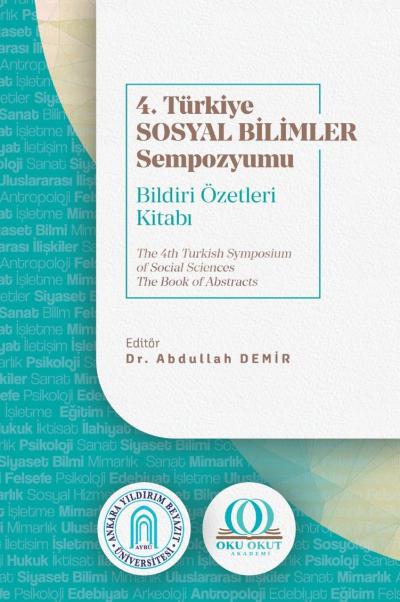Oku Okut Press reserves the right to publish and distribute the book. Permission from the publisher is required for any commercial use.
Multiverse pantheism and the problem of evil: The Case of Yujin Nagasawa
Çoklu Evren Panteizmi ve Kötülük Problemi: Yujin Nagasawa Örneği
Authors
-
Dr. Fatma Somuncuoğlu Erkanhttps://orcid.org/0009-0004-1333-3952
Pantheism is a conception of God that holds that God is identical with the universe. Therefore, one of the basic doctrines of pantheism is monism. Pantheism denies the existence of evil and defines evil as an illusion. However, many natural and moral evils can be observed around us that cause pain and suffering. In this case, it is argued that pantheists, especially those who defend monism, would have to accept that every evil in the universe is a part of God and would not be able to give a satisfactory answer to the criticism that the universe is God. Therefore, some alternative interpretations of pantheism have been attempted. The multiverse view is one of them. Yujin Nagasawa (b. 1975) argues that multiverse pantheism is more attractive than monistic pantheism for the problem of evil because multiverse pantheism avoids objections to other pantheisms. In this study, we have tried to evaluate the compatibility of the idea of the multiverse with pantheism and some of the solutions it brings to the problem of evil. For this purpose, the conceptual framework of the study is drawn by including some concepts related to the subject, especially pantheism, monism, multiverse and the problem of evil. Then, by discussing the compatibility of pantheism with the idea of the multiverse, the explanations brought by multiverse pantheism to the problem of evil, some pantheist defenses, solution proposals and their consistency are discussed and the criticisms made are evaluated in the conclusion. Some philosophers have proposed multiverse pantheism as an alternative to the problems that monistic pantheism cannot solve. However, it can be said that this idea cannot be consistent in terms of pantheism, and that pantheism avoids models that are not likely to be verified or falsified since it accepts the only universe that we can observe. Basically, the following conclusions were reached in the study: Basically, the following conclusions were reached in the study: Spinoza (1632-1677), known as a pantheist, firmly rejected the existence of more than one world. In his texts, he argues that although there is only one world, the world finds expression in countless ways, and therefore each singular being also finds expression in countless ways. Although it is thought that this opens the door to the view of a multiverse, it should not be forgotten that ""the thinking substance and the extended substance are one and the same substance"". Therefore, the conception of a world expressed under God's attributes of thought and space is claimed to be the world that actually exists.
* Bu çalışma Prof. Dr. M. Sait REÇBER danışmanlığında 2023 tarihinde tamamladığımız “Panteizm ve Kötülük Problemi” başlıklı doktora tezi esas alınarak hazırlanmıştır (Doktora Tezi, Ankara Üniversitesi, Ankara, Türkiye, 2023).
Panteizm, Tanrı’nın evrenle özdeş olduğunu savunan bir Tanrı tasavvurudur. Bundan dolayı panteizmin temel doktrinlerinden biri monizmdir. Panteizm, kötülüğün varlığını reddederek kötülüğü bir yanılsama olarak tanımlar. Fakat çevremizde insana acı ve ıstırap veren doğal ve ahlaki pek çok kötülükler gözlemlenebilir. Bu durumda özellikle monizmi savunan panteistlerin, evrendeki her bir kötülüğün Tanrı’nın bir parçası olduğunu kabul etmek zorunda kalacağı ve evrenin Tanrı olduğu konusundaki eleştirilere tatmin edici bir yanıt veremeyeceği öne sürülür. Bundan dolayı panteizm için alternatif bazı yorumlar yapılmaya çalışılmıştır. Çoklu evren görüşü bunlardan biridir. Yujin Nagasawa (doğ. 1975), çoklu evren (multiverse) panteizminin kötülük problemine monist panteizmden daha cazip olduğunu iddia ederek çoklu evren panteizminin diğer panteizme yapılan itirazlardan kaçındığını savunur. Bu çalışmamızda çoklu evren düşüncesinin panteizme uygunluğu ve kötülük problemine getirdiği bazı çözümler değerlendirilmeye çalışılmıştır. Bunun için öncelikle panteizm, monizm, çoklu evren ve kötülük problemi başta olmak üzere konuyla ilişkili gördüğümüz bazı kavramlara da yer verilerek çalışmanın kavramsal çerçevesi çizilmiştir. Daha sonra panteizmin çoklu evren düşüncesi ile uygunluğu tartışılarak çoklu evren panteizminin kötülük meselesine getirdiği açıklamalar, bazı panteist savunmalar, çözüm önerileri ve bunların tutarlılığı ele alınarak yapılan eleştiriler sonuç kısmında değerlendirilmiştir. Bazı felsefeciler çoklu evren panteizmini monistik panteizmin çözemediği sorunlara bir alternatif olarak önermişlerdir. Fakat bu düşüncenin panteizm açısından tutarlı olamayacağı, panteizmin gözlemleyebildiğimiz tek evreni kabul ettiği için doğrulanması veya yanlışlanması muhtemel olmayan modellerden uzak durduğu söylenebilir. Çalışmada temel olarak şu sonuçlara ulaşılmıştır: Çoklu evrenlerin varlığının mümkün olup olmadığı sorunu panteist olarak bilinen Spinoza (1632-1677) tarafından, birden fazla dünyanın varlığı kesin bir dille reddedilir. Metinlerinde tek bir dünya olmakla birlikte dünyanın sayısız tarzlarda ifade bulduğunu, dolayısıyla her tekil varlığının da sayısız tarzda ifade bulduğunu öne sürer. Buradan çoklu evren görüşüne bir kapı araladığı düşünülse de “düşünen cevherle uzamlı cevherin tek ve aynı cevher olduğu” unutulmamalıdır. Dolayısıyla, Tanrı’nın düşünce ve uzam sıfatları altında ifade edilen bir dünya tasavvuru bilfiil var olan dünya olduğu iddia edilir.
* This article is extracted from my doctorate dissertation entitled “Pantheism and the problem of evil” in 2023, supervised by Prof. Dr. M. Sait REÇBER (Ph.D. Dissertation, Ankara University, Ankara, Türkiye, 2023)
Copyright
Copyright (c) 2024 Oku Okut Press
ePub License

This work is licensed under a Creative Commons Attribution-NonCommercial 4.0 International License.
Downloads
Publication Information
-
Publication TypeChapter
-
Volume
-
Pages27-30
-
Forthcoming24 August 2024
-
Series
-
Series Position6
-
Categories
Somuncuoğlu Erkan, Fatma. “Multiverse Pantheism and the Problem of Evil: The Case of Yujin Nagasawa”. The 4th Turkish Symposium of Social Sciences: The Books of Abstracts. ed. Abdullah Demir - critical ed . 6/27-30. Social Sciences Proceedings. Ankara: Oku Okut Press, 2024. https://doi.org/10.55709/okuokutyayinlari.293












